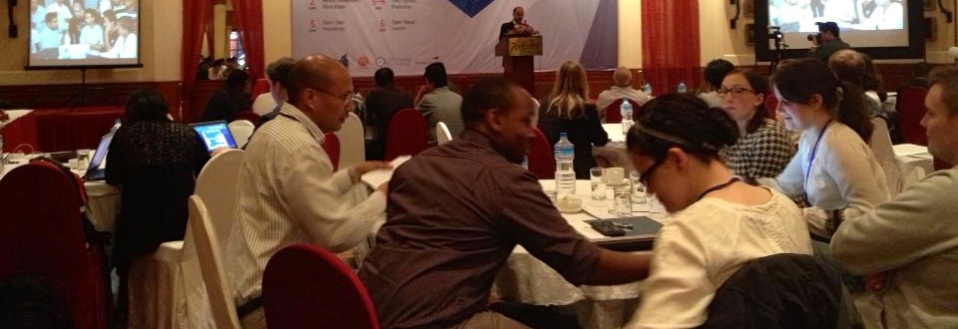Knowledge Management for Development
a global community
From Transparency to Accountability: An Online Discussion
“What does the kind of transparency that leads to accountability look like?” Last Thursday, the Lab participated in a constructive online discussion, facilitated by The Guardian’s Global Development Professionals Network, on how to build capacity for effective transparency. The discussion convened individuals from a variety of sectors and approaches, demonstrating how simple technology can bridge challenging communication gaps. Some of the great organizations represented included: Not in My Country, the Extractive Industries Transparency Initiative, Open Data Nepal, Global Witness, and Publish What You Pay Indonesia, among others. Each one highlighted different perspectives and strategies, yet there was an underlying consensus that all stakeholders must learn from and collaborate with one another in order to achieve sustainable success in the realm of transparency.

I believe the answer to the guiding question above is that transparency leads to accountability when it addresses not only whether information is made available, but also the system of incentives underlying the give and take of information. One participant noted that authoritarian leaders may decide that it is to their benefit to implement strong anti-corruption and transparency measures, but there is no foundation to ensure that such measures will last. Another individual commented that when governments and firms do provide information, it is difficult to verify the legitimacy of it, as it can be altered or diluted into a form of propaganda which is far from the frank analysis contained in leaked reports. Furthermore, someone asked whether, even when decision-makers have good intentions: “adequate assessments are made from the start before data is released on whether that data will have an impact.” On the other hand, citizens may in many cases have the ability to request procurement records or publicize an incident of injustice, but what incentive do they have to do so unless they know that such efforts have the potential to result in change?
Therefore, those working to achieve transparency should develop a comprehensive approach that is both bottom-up and top-down, and that involves all stakeholders (citizens, media, donors, government institutions, etc.). We should set an example of the transparency we’re striving for by opening up about our processes and the challenges we’re facing along the way. We should continually share ideas and information with each other. A few useful resources that we picked up from the discussion and would like to share with you are: the Public Accountability Mechanisms (PAM) Initiative’s public assessments of countries’ de jure and facto efforts to enhance the transparency of public administration and the accountability of public officials; freedominfo.org, which amalgamates news on freedom to information all over the world; and the Global Open Data Initiative, a coalition of civil society organizations seeking to provide leadership, awareness, and support for open data. Follow the Lab as we continue to build more partnerships and act on innovative ideas that will not only bring transparency, but also the accountability needed to make it count.
Donate !
***
note if the donate link above does not work for you, click here on donate! and at the bottom of that page click on the donate logo
***
Groups
-
KM4Dev 20 years celebrat…
13 members
-
KM4Dev Core Group
7 members
-
SA-GE - KM4Dev Francopho…
63 members
-
Agenda Knowledge for Dev…
31 members
-
KM4Dev Jobs Centre
344 members
You need to be a member of Knowledge Management for Development to add comments!
Join Knowledge Management for Development